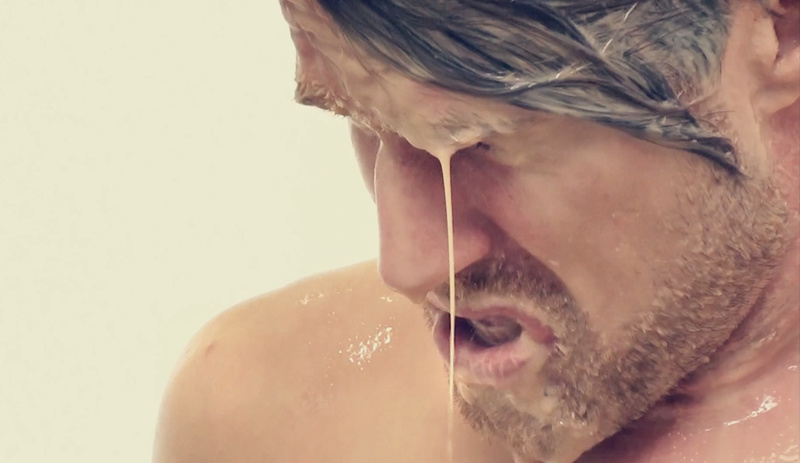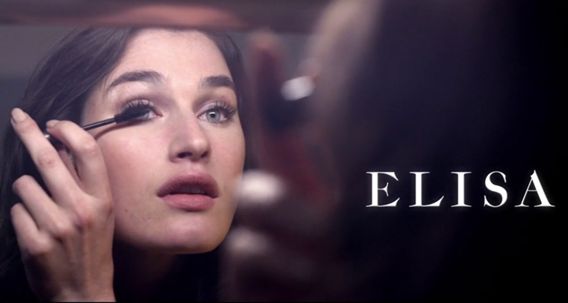Spooky. The addles of addiction have been well documented for decades, spanning from Days of Wine and Roses (1962) to Requiem For A Dream (2000) and everything in between. As such, it’s a topic that never seems to lose its narrative potency with viewers; perhaps an indicator of the vice’s relatable nature. Either way, new film Intoxication attempts to circumvent typical narrative for a plunge headfirst into the horrors of alcohol addition. It succeeds, almost too well.
The opening section of the project is spectacular. Seated on the floor surrounded by bottles, protagonist and titular bearer of bad booze, the unnamed actor begins. Shuffled narration takes the viewer through the riddled mind of an addict, all the while he opens each bottles and begins pouring them over his body. Liquor, vodka, beer, the works. As the incapacitated rambling furthers, so do the tie-die blending of label brands that convene on the floor around him. It’s a simplistic image, but one that proves colossally accurate to its condition.
And though I addressed it as the opening sequence of Intoxication, it really serves as the core narrative. Director Kristian Thorup revels so deeply in his unflattering content that viewers themselves can wind up feeling a bit, well, intoxicated. Visually, Thorup and cameraman Heine Sand Kristensen do one hell of a job infusing shot variety and colorful nuance into essentially the same shot for five minutes. A clay colored texture begins to erupt from the college of alcohol, intercut with disconcerting closeups of his skin as he struggles to keep himself sane. In doing so, the team behind this project prove themselves to be razor sharp in the arena of artistic expression; equally adept at tackling tough topics as they are showcasing them in creative ways.
Things reach such a desperate fever pitch that the dedicated performer even uncorks a bottle of wine with his teeth before continuing with the disturbing display at hand. In between each subsequent splash of the sauce, terse close-ups of the actor’s wincing skin and burning eyes escalate this hellish descent, eventually coming to a crashing smash of split second cuts that evoke Aronofsky’s Requiem once more. And then, like that, he’s gone.
Thing is, a final act sway into slightly happier territory winds up severely sapping cinematic momentum. Cut to a clean canvas, and a suddenly supine performer lays in comatose silence. The unwavering voiceover prattles on about redemption, resurrection, and a light at the end of this flooded alcoholic tunnel. Fading zoom-ins get closer and closer to the actor’s bloodshot eyes, before culminating on a decidedly upbeat note – especially given the horrors that preceded it.
Such is the issue of altering the mood at the last minute. So often films strive to hard to conjure up a world worth living in, complete with imagery, tone, and winding atmosphere. Then, in the span of a few short minutes, it switches up and viewers are left in an environment they know little about. That’s the problem with Intoxication, an otherwise gut-wrenching meditation that squanders its final frames.


